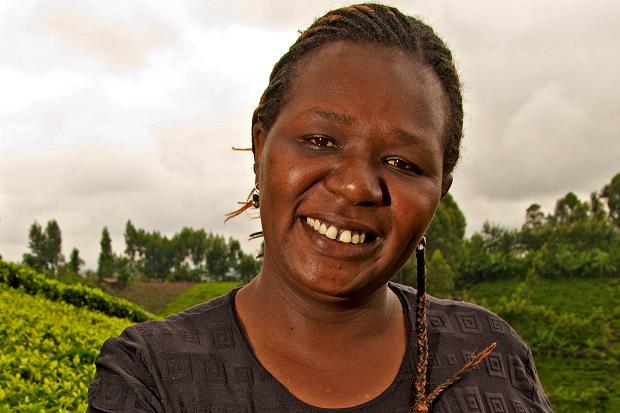With Fairtrade Fortnight underway, Laura Shannon goes shopping to see if you can be ethical and thrifty
The first basket contained five bananas, 80 tea bags, 100g of chocolate, five cereal bars and 100g of instant coffee. Prices were compared using information from Mysupermarket.co.uk. Limited-time offer prices and deals were disregarded.
In the Sainsbury’s sample, the Fairtrade basket was the cheapest. It was almost £3 cheaper than the premium basket and 17p cheaper than the own-brand basket. This is principally because Sainsbury’s has a large choice of key Fairtrade products. For example, the cheapest loose bananas are Fairtrade and some items in the basics range also come with the recognisable Fairtrade logo.
The Asda and Tesco Fairtrade baskets were more expensive than the own-brand options, but still cheaper than the premium ranges.
Across all three, the average price for the Fairtrade basket was £7.69, only 85p more expensive than the £6.84 own-brand or equivalent basket. The premium basket checked out at an average of £9.85, more than £2 more expensive than the Fairtrade option.
The second basket of goods also came up trumps against a matching basket of like-for-like items under popular brand names.
The products included: Traidcraft Fairtrade rubber gloves (£1.25 from traidcraftshop.co.uk), Geobar Apricot Cereal Bars (£1.95 for a pack of six), The Co-operative Fairtrade Gold Roast Freeze Dried Coffee (£2.49 for 100g), Clipper Fairtrade Everyday Tea (£1.19 for 40 teabags), Traidcraft White Granulated Sugar (£1.15 for 500g) and eight Sainsbury’s Basic bananas for £1.15.
This basket comes to a total of £9.18, but a basket of rival brand names was more expensive at £10.43.
Larry Bush, marketing director of the Fairtrade organisation Traidcraft, says: “Making the switch to buying Fairtrade products doesn’t have to cost families a fortune. In fact, sales held up during the recession, which shows that our customers still stay loyal, even when times are tough.”
The Fairtrade option is no longer limited to a small range of commodities. Clothes, gifts, wine and cosmetics are all now appearing in shops and online with labels bearing the Fairtrade stamp of approval.
Sales of Fairtrade wine have increased despite shrinking disposable incomes, with a 43 per cent rise in the UK compared with last year, according to Fairhills Fairtrade Wine.
A bottle of Fairhills wine is currently on offer at £5.20 in Waitrose, or £4.93 a bottle with free delivery if you buy a case of 12 online through Waitrose Wine Direct. Other top offers of the month from the same retailer are more expensive, with prices ranging from £5.69 to £7.58 a bottle.
Bulldog, a small independent company selling natural grooming products for men, offers a Fairtrade moisturiser and shave gel in its Eco-System range, at £7.49 for 100ml and £4.39 for 175ml respectively.
By comparison, the brand’s original moisturiser costs £6.99 for 100ml, while Nivea for Men Rehydrating Moisturiser can cost anywhere between £4 and £7 for 75ml, depending on where you buy it.
Fairtrade cotton tops for women can be purchased from Marks & Spencer for £6 and cotton-rich denim jeans for £19.50. A standard cotton T-shirt at M&S is the same price as the Fairtrade top.
If you want to make sure that you are buying Fairtrade products, look for the logo. The mark, stamped on the labels of items such as coffee, wine and cotton clothing, is a consumer guarantee; it acts as proof that farmers who produced the raw materials were paid a fair and decent price for doing so.
Some brand names, such as Dairy Milk and Starbucks, now have the logo on some of their products and further uptake is expected this year. Green & Black’s will also convert its entire range of chocolate bars and drinks in the UK by the end of this year.
Kwame Banson, who works for Fairtrade Africa, focusing on countries in the west of the continent, says that while Fairtrade products are often great value, it is wrong to focus on price alone: “Farmers in the developing world typically have very little access to markets and are unable to sell their products, but Fairtrade is a solution.
“It makes a difference by guaranteeing prices that cover the cost of production and allow them to buy food.”
The national primary school enrolment rate in Mali is about 43 per cent, but in Fairtrade communities this rises dramatically, to about 95 per cent.
“Farmers are given a voice, ensuring that their perspectives are reflected in prices and policies,” Mr Banson says.
“Consumers in the UK are making a lot of difference in the lives of marginalised people by opting for Fairtrade. It means that farmers can send their children to school and give them better access to healthcare because they get a fair wage.”
This article was provided by Common Sense Style Blog.
